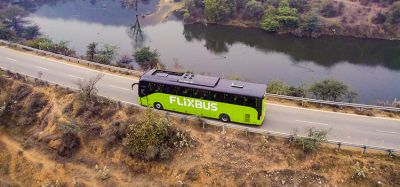IRU calls for improved awareness of MaaS benefits and risks
- Like
- Digg
- Del
- Tumblr
- VKontakte
- Buffer
- Love This
- Odnoklassniki
- Meneame
- Blogger
- Amazon
- Yahoo Mail
- Gmail
- AOL
- Newsvine
- HackerNews
- Evernote
- MySpace
- Mail.ru
- Viadeo
- Line
- Comments
- Yummly
- SMS
- Viber
- Telegram
- Subscribe
- Skype
- Facebook Messenger
- Kakao
- LiveJournal
- Yammer
- Edgar
- Fintel
- Mix
- Instapaper
- Copy Link
Posted: 31 October 2019 | Intelligent Transport
IRU has published its position on MaaS, calling for improved awareness of the benefits and risks of MaaS relating to governance, costs and data.


The International Road Transport Union (IRU) has published its position on Mobility-as-a-Service (MaaS), calling for improved awareness of the benefits and risks of MaaS as well as a balanced approach as the industry pushes to embrace MaaS.
Some challenges related to MaaS are said to be issues with price structures, regulatory questions around liability, risks involved with data handling and a lack of maturity of MaaS business models.
In the EU, around 2 million people are employed by 370,000 companies operating in the passenger road transport sector1. The majority of these businesses are said to be small and medium sized (SMEs) with less negotiation leverage and limited resources. Political intervention is therefore considered necessary in the interest of companies and passengers alike.
IRU’s new position paper has called for political action to address open questions around MaaS:
Governance
Access conditions to MaaS and terms and conditions within MaaS must be clearly defined to include at least the following requirements:
- Public authorities should assure that MaaS systems are inclusive and not established as closed ecosystems available to only some operators or modes of transport
- MaaS operators should have defined responsibilities, such as a check-your-partner obligation, and specific limitations regarding ranking of transport services displayed to customers (e.g. prohibiting self-promotion)
- Public authorities selecting MaaS operators/integrators must observe transparent, non-discriminatory and objective criteria and procedures, mirroring the public procurement legislation.
Data
Data sharing and re-use must be regulated. As data is becoming the new currency, general data protection rules for businesses are needed. Data reciprocity and portability (the possibility for a platform user to retrieve its data and move it to other platforms) cannot be left to the free will of the market.
Costs
Cost issues for transport operators must be adequately addressed. Provision of quality data and minimum data sets should not lead to the exclusion of SMEs, which cannot afford the gathering and providing of such data.
Matthias Maedge, General Delegate at IRU, commented: “MaaS will play a significant role in the future of urban travel and it should result in better efficiency and revenue opportunities for road transport operators. While envisioning the opportunity, we must urgently address the open regulatory questions around MaaS.”
References
1: EU Energy & Transport in Figures, Statistical Pocketbook, 2018
Related topics
Mobility Services, Public Transport, Transport Governance & Policy
Related organisations
International Road Transport Union (IRU)
Related people
Matthias Maedge








